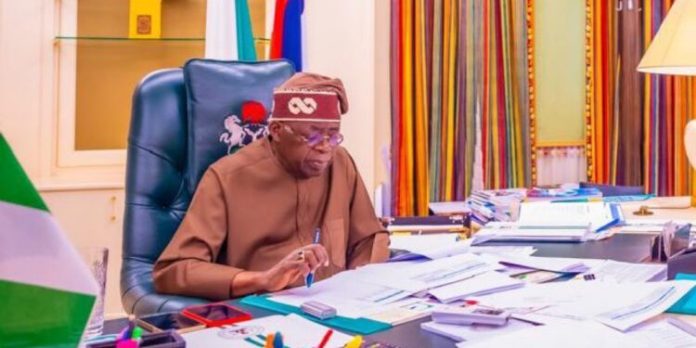The Nigerian Senate has approved President Bola Tinubu’s request to borrow ₦1.77 trillion ($2.209 billion) from external sources to bridge the deficit in the 2024 budget.
The loan, approved during Thursday’s plenary, followed a report presented by the Senate Committee on Local and Foreign Debt. It will be utilised as part of the ₦28.7 trillion 2024 budget, as outlined in the Appropriation Act.
President Tinubu, in a letter to the Senate earlier in the week, explained that the borrowing aligns with the provisions of the 2024 Appropriation Act and the Debt Management Office Establishment Act of 2003. The Federal Executive Council had previously given its nod for the borrowing plan, which aims to fund key capital projects and programmes in the budget.
The funds will be sourced through Eurobonds in international capital markets at competitive interest rates significantly lower than domestic borrowing costs. The official exchange rate of ₦1,640 to $1 will apply.
Presenting the committee’s report, Senator Aliyu Wamakko, Chairman of the Committee on Local and Foreign Debt, noted that the borrowing would bolster Nigeria’s foreign reserves and support the completion of critical projects.
“This initiative is part of the federal government’s Debt Management Strategy, aimed at reducing borrowing costs, extending the maturity profile of public debt, and freeing up the domestic market for other borrowers,” Wamakko stated.
He highlighted Nigeria’s strong track record in the international capital market, having raised $16.92 billion through Eurobonds, with $15.12 billion currently outstanding.
Wamakko acknowledged that while the country is well-positioned to raise the $2.209 billion via Eurobonds, alternative options such as bridge financing or syndicated loans could be explored if market conditions delay the bond issuance.
The Senate pledged to collaborate with the Ministry of Finance to ensure proper utilisation of the funds once secured.
The plenary, presided over by Deputy Senate President Barau Jibrin, approved the request without debate. Jibrin described the external borrowing as essential for the nation’s economic stability and development.













